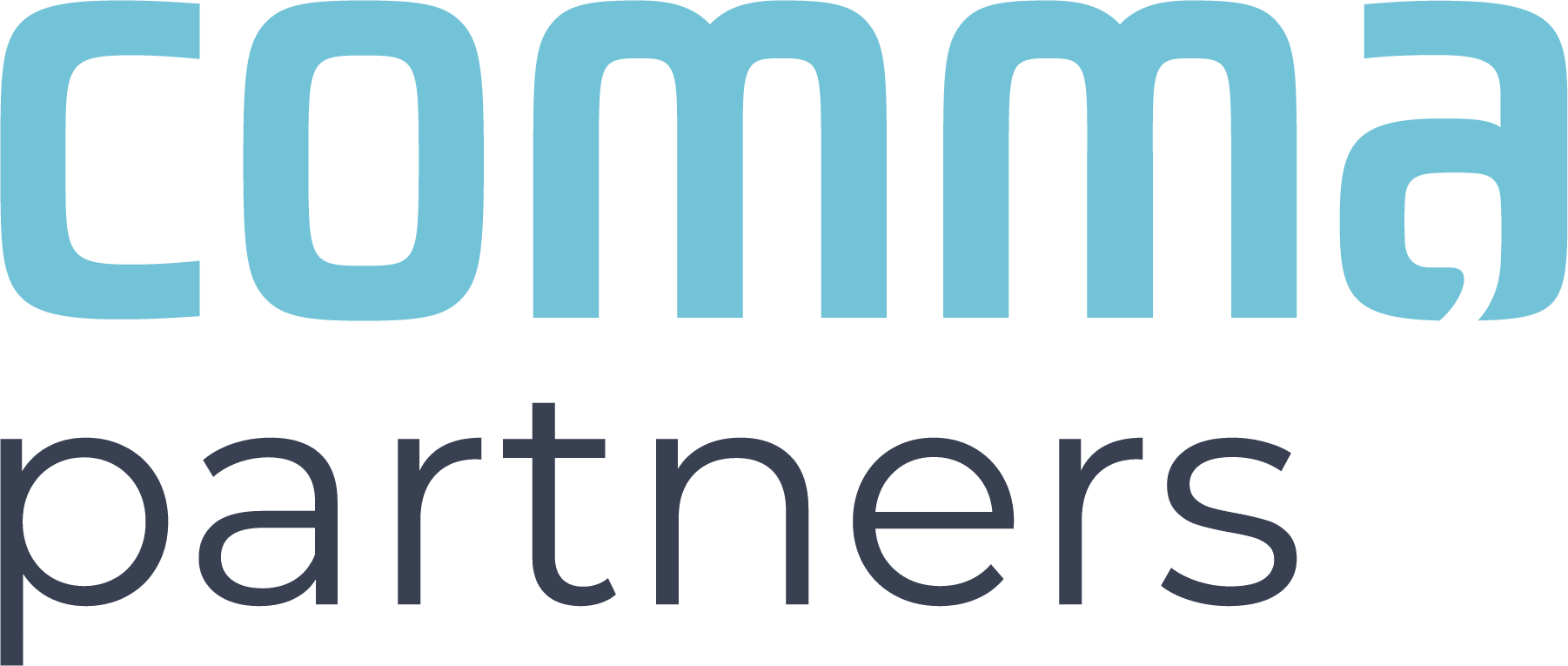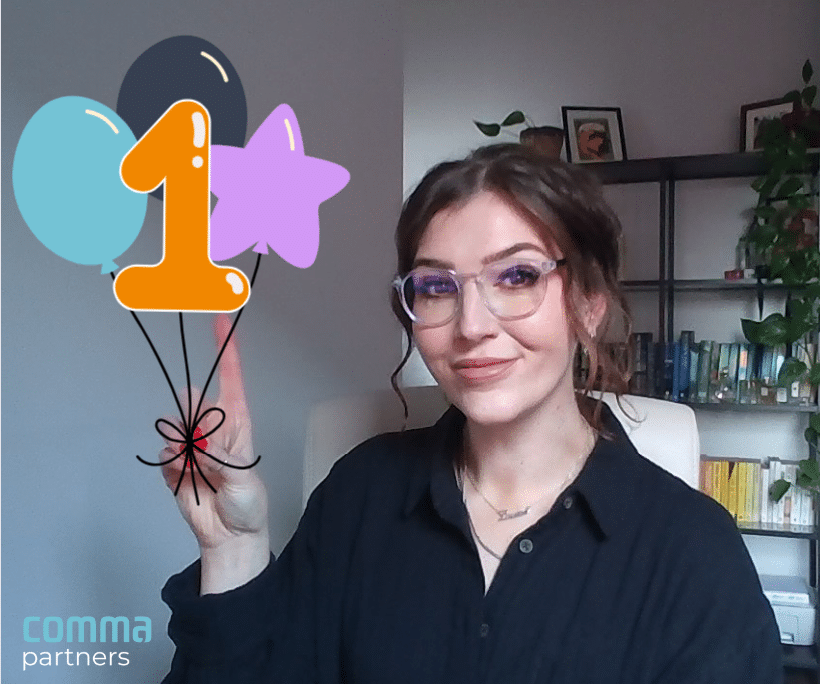There are many career options available to IC (internal communications) professionals these days – employee engagement, change communications, employee experience. But the traditional path from IC specialist to Head of/Director of IC is still very popular.
Comma’s third career session focused on those in mid-level roles considering a leadership role and gathered insight from those who have made the jump already.
We heard from a very experienced trio: Madeleine Porter, May Holloway and Phil Askham. All have followed this traditional path. Madeleine is currently Head of IC for Reach, UK and Ireland’s largest national and regional publisher; May is Head of IC at British Transport Police and the current holder of the IoIC’s IC Communicator of the Year award; and Phil Askham was most recently at HSBC as Global Head of Employee Communications and is now a senior consultant at reputation management consultancy Montfort.
We started with a heart-warming and encouraging introduction by Phil who said, ‘If you are aspiring to be a Director of IC, I can confirm that it really is a brilliant job. Representing the interests of your workforce, enhancing their experience of work, driving higher standards of leadership, influencing thinking and action at the highest level. On a good day, it’s a wonderful and a privileged post to hold.’
But Phil also delivered a dose of reality, ‘It’s no walk in the park’, said Phil. Using a sporting metaphor, he likened it to a senior player in a football club becoming player/manager. ‘The role,’ he said, ‘comes with a much broader set of responsibilities, very different relationships and a higher degree of exposure and accountability.
‘It’s a great opportunity if that’s what you want, but it also brings a much higher level of risk if you are placed in that type of role and you are not ready for it. My advice would be – make sure you are ready for it before you make the plunge. Assess yourself and talk to others who can help.’ Sound advice from Phil.
Our first question to the panel: What are the differences between a mid-level IC specialist role and a Head of/Director of IC leadership role?
Phil started with, ‘The role pivots from being someone who largely gets things done themselves to getting things done largely through other people, and from a production focus to a production and strategy focus, getting the right things done.
‘You are also going to be giving constructive feedback to senior people about their performance as communicators. We all know powerful people are sensitive about their reputation so you need to land your advice carefully.
‘There’s also the grind of ploughing through management systems – budgets, headcounts, performance management – which your Finance team or COO is going to be looking to you to do.’
Madeleine reminded us that not all industries will be at the same level of maturity when it comes to internal communications. For some, you will still need to occasionally roll up your sleeves and get involved in the day to day. Nevertheless, ‘it’s important’, she said, ’to give yourself the space to step up and operate at that higher level.’
For May it was about making sure you have opinions. ‘You may not be an authority on everything but at this level you will be expected to have an opinion on everything, not just on communications. The higher you go up, the broader reach your tentacles will have.’
The second question to our panel was about the strengths or attributes you need to thrive as a Head of IC
May started us off. ‘Authenticity. You must be able to build a rapport with everyone at all levels but also remain true to yourself. And you are only going to be able to give true advice if you can bring your whole self to work and be authentic.
‘You need to be credible to sit at the top table and be a trusted advisor. Communicators are used to being the most junior in a leadership meeting because you are advising senior stakeholders but when you are a Head of IC/Director you are talking to them as an equal.
‘You need to be a people advocate and speak on behalf of the people in an organisation. This means being able to challenge leaders’ perceptions of how people think. This is not always an easy job. Everyone might be talking about finance, regulation or policies and assume that the support of the workforce is a given. You have to be brave enough to be able to say – you might think this is the accepted wisdom, but your staff aren’t there yet. You’re going to have to trust me on this one.’
For Phil, ‘Because this is a role much in demand by different people you will have an almost constant, overwhelming agenda that keeps evolving – a list of things you can’t possibly deal with alone. You need good people around you, as I had at HSBC. You have to hire well and delegate well.’
For Madeleine, the real differentiator when you step up is realising you’re a leader yourself. ‘You will have been used to looking after cascade communications for others and advising leaders, but now you have to live by your own values and do all the things you tell others to do constantly, like explaining the company strategy and making sure appropriate hygiene factors are in place.’
Our third and final question – What does a good IC leadership role look like?’
Phil is very clear on this. ‘The first consideration for me is, where is the company strategically in its market and what are its future plans at the time you join. This will define what the leadership team needs from you. If a company is about to go through a demerger it will need different skills and a different approach from you than if it is changing its brand. In applying for any new role be sure you know where the organisation is at – what the key priorities are at that time. And don’t forget, an organisation in crisis or change of ownership can offer a great opportunity if you can hit your stride at the right time.’
Sometimes it’s about taking a risk. For Madeleine, she moved from a law firm into the gambling industry. Many thought she was crazy moving from a role in the City to a role which involved a two-hour commute. But because the gambling sector was not as mature as professional services it gave her a great opportunity to showcase what she could do and totally changed her career. She strongly encourages everyone to look below the surface of an opportunity.
Back to Phil, ‘Consider reporting lines. It’s an on-going debate as to whom IC should report. Generally, it’s HR, Marketing or Corporate Affairs. In theory it should make no difference but in reality, it often does. Reporting into marketing will tend to give the role a brand focus, HR a culture or EX (Employee Experience) focus and Corporate Affairs a reputational focus. Think these things through when thinking about making a move.’
On that note, we draw to an end the sharing of the knowledge, experience and advice of our panel. So much more was discussed during the session, but rather than overwhelm everyone with too much information, we’ll hold back some of those nuggets and share them with you at a later date. We don’t want to spoil you!
If you’d be interested in joining future career sessions with us at Comma, contact our newest recruit, Louise.white@commapartners.com.




